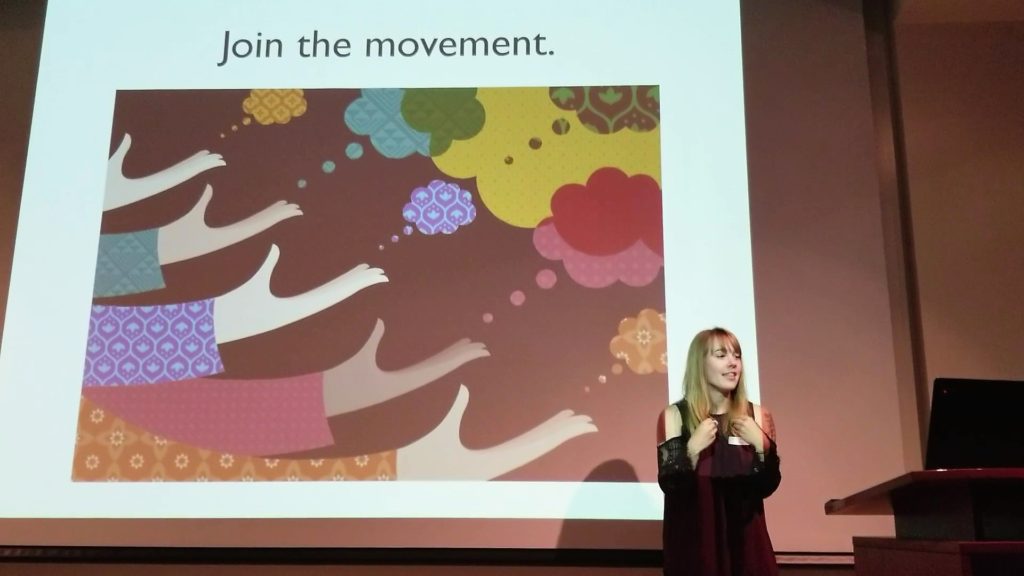
Meg Ronson, has a Masters of Economic Development and Innovation from the University of Waterloo. Meg is currently the Member Success Specialist at SuccessionMatching, an online community of business buyers, sellers, and succession planning professionals.
Almost four years ago, I became a member at Karma Co-op Food Store—a small, historic food co-op in Toronto’s Annex neighbourhood. The co-op began as a cost-effective way for the residents of the area to access high-quality, local, fair-trade, organic produce and health products in the early 70s, back when such things weren’t readily available at your local grocery store. Today, it is a resilient staple for ethical consumers in the area and is competing with the likes of Whole Foods just a few city blocks away.
I had always been concerned about the sustainability and ethical production of the things that I buy. The co-op not only offered me a one-stop shop I was comfortable using, but its democratic governance system meant that I could have a say in how it was run. Furthermore, because Karma reinvests all of its profits back into its operations, every penny I spent was dedicated to enhancing and improving my experience as a shopping member, rather than getting scattered across a global market. The small, dedicated staff was paid a living wage and was mainly in charge of coordinating a substantial team of working members who volunteered their time stocking shelves, manning a till, or sitting on a committee. I myself worked proudly as a Sales Task Force Committee member and produced a price comparison study that is still on the website to this day.
This, I decided, was the future of sustainable consumption, in which locals had a stake and say in where their money was going.
Little did I know that the appetite for this kind of community-oriented enterprise was growing, and that the next generation of business-owners was already busy building the many alternative business models we now refer to as “social enterprises.” The triple bottom line approach to doing business – in which environmental, social, and environmental factors are measured equally – has become second nature to the way we think about business. Not only does the new generation of consumers, workers, and leaders understand this concept, but they are actively applying it to their business models, their marketing, and their scholarship. They are using businesses to solve social, environmental, and ethical issues, all while making a living.
However, since the co-operative business model is rarely part of most entrepreneurship education, whether in high school, post-secondary, or start-up environments, many new and aspiring entrepreneurs are unaware of the model. An entire cohort of leaders are thus attempting to reinvent the wheel that co-operatives have been using for over a century.
The power and promise of the co-operative business model, despite a lack of awareness of its existence or a policy environment that is supportive of it, are the beating heart of the paper I produced alongside Dr. Sean Geobey, with the support of the Atkinson Foundation, while completing my Masters of Economic Development at the University of Waterloo. Entitled The Co-operative Opportunity: A Strategy for Small Business Succession in Ontario, it examines the looming spectre of aging small business owners retiring out from under their strong, viable businesses with no one to hand the reins to. Major Canadian stakeholder institutions have long been sounding the alarm to the business community and news media, but little has been done to mitigate the risk that this wave of business exits poses to our communities and our workers – people who depend on small businesses for their goods, services, and livelihoods.
What does this issue have to do with co-operatives? Potentially everything.
As our paper seeks to demonstrate, governments and communities from around the globe have been successfully converting these transitioning businesses into co-operatives, not only as a way to preserve the value chains they are a part of, but also to create more stable and sustainable local economies. Among the many intangible economic and social benefits that co-operatives can offer their ecosystems, we argue that they also provide workers with a stronger voice, statistically better and fairer pay, more personal and professional development opportunities, and a more secure job tenure than conventional businesses tend to provide, while also creating more engaged and socially conscious workplaces.
If any of this sounds at all interesting to you, I invite you to read Dr. Geobey and my short, yet extensively-researched, report. It is meant to act as both a tool and resource for co-operative policy advocates and as a call to action to the next generation of business leaders and entrepreneurs.
There are many businesses out there in need of new leadership, and so many talented, forward-thinking aspiring entrepreneurs ready to lead them. By combining the available skills, experience, and commitment of a new generation of owners, these businesses may not only survive the transition, but thrive under new co-operative management, if only they knew it existed.
